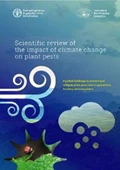
World Food Prize (WFP) is an international award that recognises an individual's contributions to development by increasing the quantity, quality, or availability of food around the world. Cynthia Rosenzweig, a senior research scientist and head of the Climate Impacts Group at NASA's Goddard Institute for Space Studies (GISS) in New York City, was named the 2022 World Food Prize winner by Barbara Stinson.
Rosenzweig, according to the president, has been involved in agriculture for several decades and has been a leader in food and climate since the early 1980s.
"I am thrilled and honoured to receive the World Food Prize this year because food systems are now emerging as a key component of climate change," she said while accepting the award, according to NASA.
Cynthia Rosenzweig is a well-known climatologist and agronomist who established a project to study the effects of climate change on food supply. It was named the World Food Prize laureate for 2022.
Cynthia's mentor and colleague was World Food Prize Laureate Dr Daniel Hillel, with whom she collaborated on numerous studies. She first collaborated with him in 1993 to compare model projections to reality.
Then he spent four decades cultivating and comprehending the biophysical and socioeconomic interactions. According to the World Food Prize, she understands that involving farmers in agricultural research is beneficial to research knowledge.
Dr. Rosenzweig has worked hard to improve agricultural models that will benefit people all over the world. Cynthia Rosenzweig, for example, is already using agricultural data from NASA's fleet of Earth-observing satellites to better understand food production and security in a changing climate.
Rosenzweig has increased and elevated his work assessing the impact of climate change on food production. She has established a strong link between the food system and climate change.
She published her first journal article in 1985 on modelling the potential impacts of climate change on North America's wheat-producing regions and how wheat-growing crop zones might shift as the climate changes. She has played an important role in the growing understanding of what is required to strengthen resilience to climate change in the United States.
















